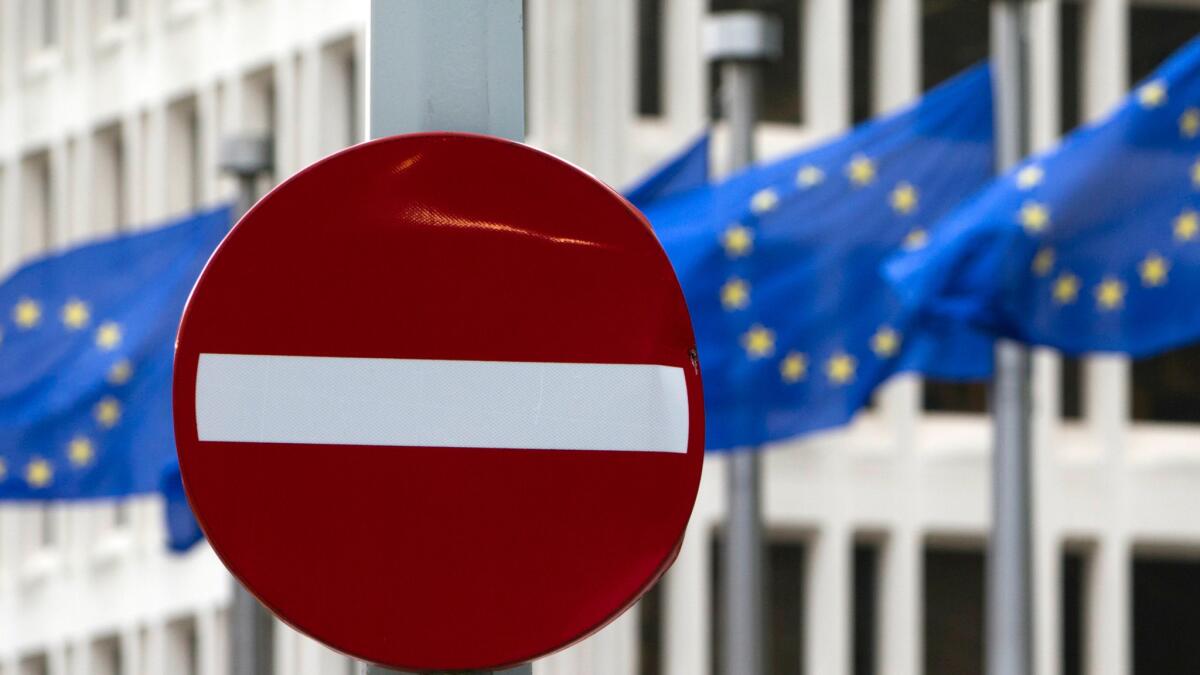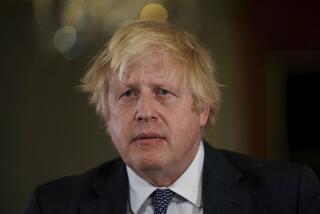Op-Ed: ‘Brexit’ is the European Union’s chance to clean up its act

- Share via
Great Britain has never really gotten over its loss of empire. The day President Obama removed Winston Churchill’s bust from the Oval Office, a minor diplomatic crisis ensued. Many British people considered this to be nothing less than an act of treachery. One of the fiercest reactions came from former mayor of London and — in his wildest dreams — a prime minister in waiting, Boris Johnson. As the “Brexit” debate heated up, he later claimed that “part-Kenyan” President Obama may have an “ancestral dislike” of the British Empire. A racist slip of the tongue that was nevertheless very revealing of how Britain’s establishment figures still mourn their imperial past.
The vote Thursday that took Britain out of the European Union represents, in a rather feeble way, an attempt to regain perceived past glories. The core message of the “Leave” campaign was “vote leave, to take back control.” It will not work, but that is not the concern of the rest of Europe. We have other things on our mind. First, we have to make sure the United Kingdom actually leaves the European Union. We have to make a clean cut and do it fast. This might sound ridiculously obvious to Americans, but in the European Union of 2016, the leaders of the member states tend to lose their ability to take decisions when they congregate.
The biggest risk that the EU currently faces is that “Brexit” negotiations will now drag on for years and will be added to the long list of its never ending crises: the Greek crisis, the migration crisis, an unresolved economic crisis and constant terrorist threats. Every couple of months, the EU’s 28 national leaders gather around the negotiating table, look each other in the eye and decide not to decide.
The secession of the United Kingdom, however, demands more. For the first time in its 60-year history, the EU is faced with a country that has decided to quit the alliance — and not its smallest member. I was on the European Council for nine years, I know how tempting it will be for the leadership to delay. After all, Britain and Europe remain major trading partners. There are goods and services to be sold on both sides of the English Channel. But if we’re soft now with Britain, giving it too much wiggle room to extract favors and deals, we will only feed anti-European parties elsewhere in Europe and strengthen the belief of nationalists and populists that the European Union is a walkover.
That is why it is vital to make a clear cut as soon as possible. What our exact relationship with Britain will be is a concern to be dealt with later. The first priority, for the rest of the Union should be a thorough reform of our out-dated institutions and policies. The British people were right to question the ability of the current European Union to meet the challenges European countries face.
The “Brexit” is a wake-up call for the remaining 27 EU members. We are now dependent on each other to make the best of it.
Not only have we failed to clean up our banks — nine years after the outbreak of the financial crisis — and neglected to come up with decent plan to reboot our economy, the EU is paralyzed by a deep cultural unrest. After the cold war, Europeans believed it was the “end of history,” and we were in the role of victors. Today, we know this was a mirage. Europe is shaken, insecure. We don’t have the beginning of a strategy in Syria, let alone a consistent battle plan against Islamic State at home or abroad. We don’t have a clue how to react to the dangerous whims of Russia’s President Vladimir Putin either. For all these mighty challenges, we look to America for solutions.
But the United States is running out of patience: Europe has become a troublemaker, unable to act and more likely to get in the way when things get serious than to make any meaningful contribution. Assistant Secretary of State Victoria Nuland, who took the lead in shaping Ukraine’s transition government, was the clearest in her rejection of Europe’s non-existing foreign policy. She dismissed our inefficiencies with a heartfelt expletive. But it was the president himself who dealt Europe the hardest blow by calling us “free riders,” a statement that goes to the core of the problem and well beyond the symbolic removal of a bust of a dead prime minister.
The humanitarian disaster in Syria, the dictatorship of Abdel Fattah Sisi in Egypt, Putin’s invasion in Ukraine and his annexation of Crimea. These are hot issues and conflicts in our European neighborhood. It’s high time we assume responsibility for them.
As a result of “Brexit,” the European Union loses its largest military power, currently outspending number two, France, by more than $10 billion. We lose our most valued foreign service and our strongest voice in the world. But being defeatist will not move things forward. The “Brexit” is a wake-up call for the remaining 27 EU members. We are now dependent on each other to make the best of it. That means, for once, avoiding the European reflex to be overly cautious when it comes to reform.
We should to not be held back by the past and we must start building a strong European defense force and a united foreign policy. One that the United States can rely on instead of one that needs a chaperone. It does not lie in our European nature to see opportunities in a crisis, but that is exactly what we should be doing now.
Guy Verhofstadt was prime minister of Belgium from 1999 to 2008 and the leader of the liberals in the European Parliament. His latest book, “Europe’s Last Chance,” will be published in the U.S. in January. @GuyVerhofstadt
Follow the Opinion section on Twitter @latimesopinionand Facebook
More to Read
A cure for the common opinion
Get thought-provoking perspectives with our weekly newsletter.
You may occasionally receive promotional content from the Los Angeles Times.






